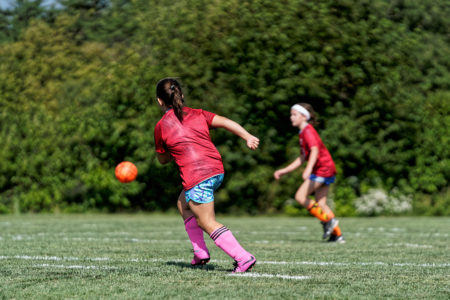I told my son yesterday that my biggest goal in parenting is not for him to have the best childhood, but for him to grow into the best adult. Obviously, that’s an oversimplification. I’d love it for him to have a wonderful childhood and I also don’t assume he needs to be the “best” adult to be loved and worthy. But in the moment where he was complaining about what I wasn’t letting him do that “ALL” his friends get to do, I wanted him to know why there are times I don’t make the same decisions he thinks other parents are making. I’m doing this all with the end in mind.
That’s a phrase I learned from my friend and longtime mentor, Stan Parker. So I’m glad we got to have this conversation about how we can encourage kids to make mistakes, take risks and learn to cope with failure. It’s not because failure is fun in the moment. It’s because we’re trying to help them learn how to become successful adults.

You can listen to our interview below and you can read all the things I thought about after the interview underneath.
I’d love to hear how you encourage safe mistakes for your kids too!
-This conversation was based on the post you can read here.
-Kids need to see us having fun doing things we’re bad at. Singing, dancing, playing sports, doing a puzzle- normalize having fun doing things where you aren’t the best.
-Think about how you talk about people in front of your kids. Do we only praise certain skillsets? Do we praise people who are top achievers, even if they have a terrible attitude or sacrificed family, faith or mental health to get where they are? Do we praise people who serve in what the world would consider lowly or humble positions? Do we praise skills that aren’t always recognized as gifts in our fast-paced, fame obsessed culture? I think it’s important to help our kids see value in people or positions that aren’t always highly rewarded or honored.
-Some of our kids will do well in school with minimal effort. Some will STRUGGLE to pass classes. We need to learn to praise effort and hard work over just straight achievement. When kids struggle, fail, learn and then implement what they’ve learned, they’ve actually gained a much more important skill than just being successful from the beginning. We need to give our kids opportunities to learn that skill and provide them encouragement when they’re struggling.
